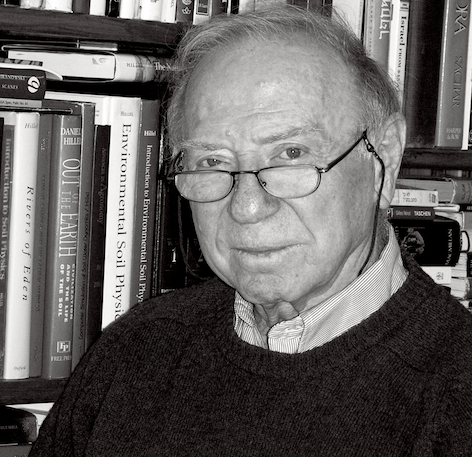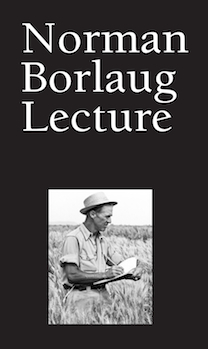
AMES, Iowa -- 2012 World Food Prize laureate Daniel Hillel will present the Norman Borlaug Lecture at Iowa State University.
Hillel's presentation, "Soil, Water, Energy and Ecosystems in a Changing Climate," will be at 8 p.m. Monday, Oct. 15, in the Memorial Union Great Hall. The talk also is part of the World Affairs Series and free and open to the public.
A reception and student poster display will precede the lecture at 7 p.m. in the Oak Room. Posters by undergraduate and graduate students will address world food issues.
Hillel was honored by the World Food Prize for developing and implementing micro-irrigation systems that deliver water more efficiently to crops in dry lands. For more than 50 years, these precision watering systems have revolutionized agriculture in the Middle East and other arid regions around the world, allowing producers to maximize water resources, increase crop yields and minimize environmental degradation.
A soil physicist by training, Hillel's work emphasizes the inter-connectedness of food production, water management and soil science. The World Bank, U.N. Food and Agriculture Organization and the U.S. Agency for International Development have promoted his techniques globally.
Hillel is a research scientist at Columbia University's Earth Institute and works on the adaptation of agriculture to climate change in association with NASA/Goddard Institute for Space Studies. He is the author of 21 books translated into 12 languages, as well as numerous articles and manuals that have extended his techniques throughout the world.
The Norman Borlaug annual lecture is named for the Cresco native and agronomist whose discoveries sparked the Green Revolution. Borlaug received the Nobel Peace Prize for his international work in wheat research and production, which has saved millions of lives. He is the founder of the World Food Prize, which annually recognizes the achievements of individuals who have advanced human development by improving the quality, quantity or availability of food in the world.
In conjunction with the annual World Food Prize Celebration, this lecture is coordinated by Iowa State University's Nutritional Sciences Council and cosponsored by the Office of the President; the colleges of Human Sciences, Liberal Arts and Sciences and Agriculture and Life Sciences; the Plant Sciences Institute; World Affairs Series; the World Food Prize Foundation and the University Committee on Lectures, which is funded by the Government of the Student Body. More information on ISU lectures is available online at http://www.lectures.iastate.edu, or by calling 515-294-9935.
-30-
